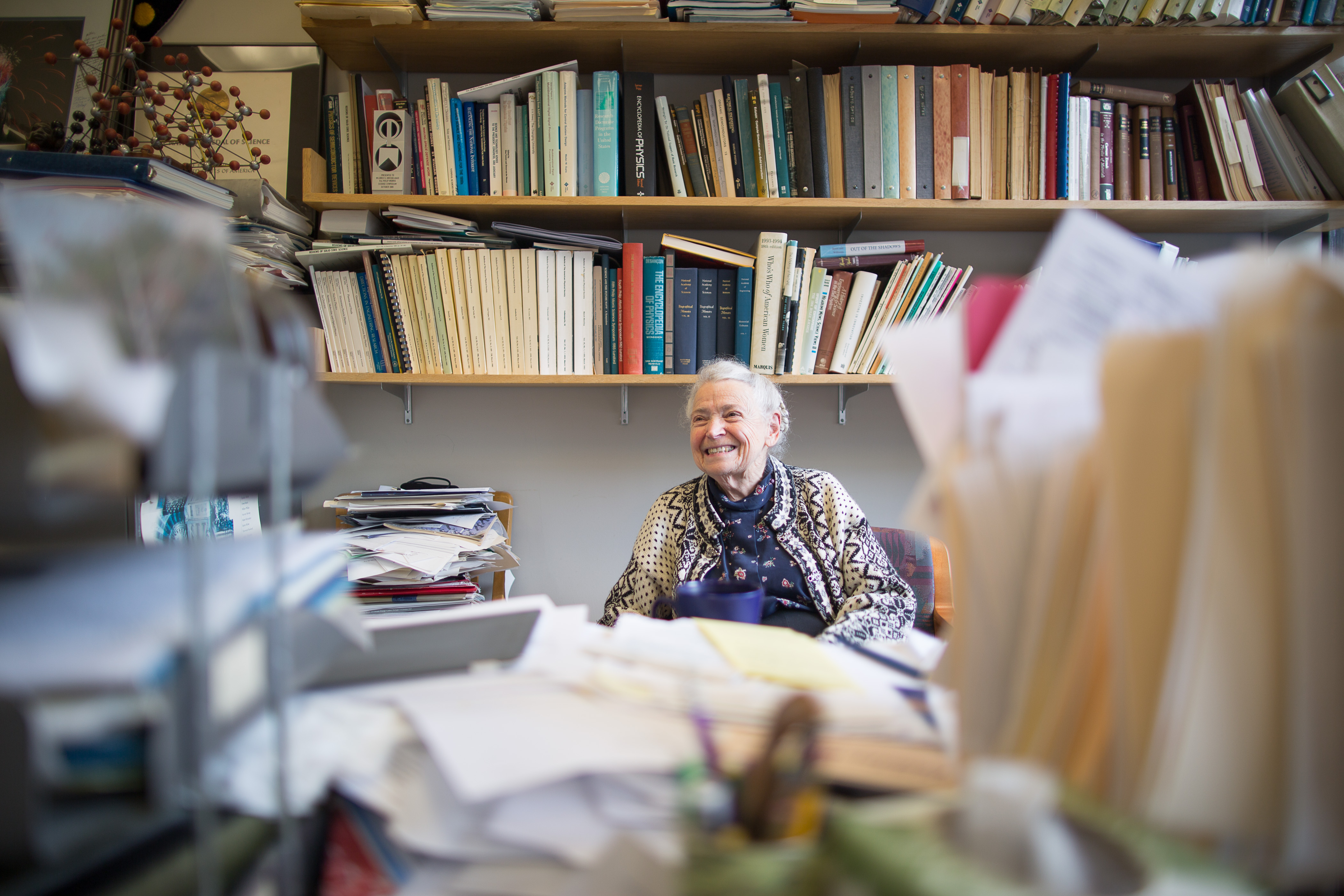Remembering Mildred Dresselhaus

Nanoscience pioneer Millie Dresselhaus, one of the first scientists to imagine that it was possible to make carbon nanotubes, died Monday at the age of 86.
“Yesterday, we lost a giant—an exceptionally creative scientist and engineer who was also a delightful human being,” MIT president L. Rafael Reif wrote in a message to the MIT community. “Among her many ‘firsts,’ in 1968, Millie became the first woman at MIT to attain the rank of full, tenured professor. She was the first solo recipient of a Kavli Prize and the first woman to win the National Medal of Science in Engineering.”
An MIT Institute Professor emerita of physics and of electrical engineering and computer science, Dresselhaus was well known for her seminal work on nanomaterials and for being the first to exploit the thermoelectric effect at the nanoscale, efficiently harvesting energy from the temperature differences in materials that conduct electricity.
The coauthor of eight books and some 1,700 papers, she supervised more than 60 doctoral students in her 50 years on the MIT faculty and worked tirelessly to promote gender equity in science and engineering. Most recently, she received the Presidential Medal of Freedom from President Obama in 2014 and had remained active as a scientist (see MIT Technology Review’s Seven Over 70 list in 2013).
Keep Reading
Most Popular
Large language models can do jaw-dropping things. But nobody knows exactly why.
And that's a problem. Figuring it out is one of the biggest scientific puzzles of our time and a crucial step towards controlling more powerful future models.
The problem with plug-in hybrids? Their drivers.
Plug-in hybrids are often sold as a transition to EVs, but new data from Europe shows we’re still underestimating the emissions they produce.
Google DeepMind’s new generative model makes Super Mario–like games from scratch
Genie learns how to control games by watching hours and hours of video. It could help train next-gen robots too.
How scientists traced a mysterious covid case back to six toilets
When wastewater surveillance turns into a hunt for a single infected individual, the ethics get tricky.
Stay connected
Get the latest updates from
MIT Technology Review
Discover special offers, top stories, upcoming events, and more.